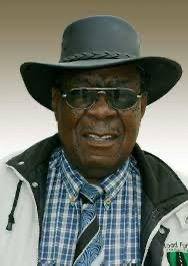ISRAELI-BORN extradition target Kobi Alexander may continue to live and work in Namibia until a current dispute he has with the Immigration Selection Board over the granting of a work permit to him has been sorted out, it was ordered in the High Court yesterday.
In terms of an order handed down by Judge Collins Parker, Alexander may lawfully live in Namibia and lawfully carry on business in the country until the end of a case in which he is set to ask the High Court to review a decision that the Immigration Selection Board took on November 25 last year on an employment permit renewal application by him.Alexander (57), who is the target of an extradition request that the United States of America directed to the Namibian Government in September 2006, has been living in Namibia with his wife and three children since late in July 2006.In the US, he is wanted on 35 criminal charges connected to allegations that he had committed fraud with the receipt of stock options in Comverse Technology Inc, a New York-based company that he had helped found in 1982 and ran until early 2006.Alexander, who has been free on a Namibian record bail amount of N$10 million since October 3 2006, is opposing the extradition request. He has stated in affidavits filed with the High Court that he is denying that he is guilty of the charges filed against him in the US, and that if he is ever extradited, he would ‘vigorously contest’ those charges.According to documents filed with the High Court in the case in which Alexander asked to be allowed to continue to live and work in Namibia, he was granted a temporary employment permit allowing him to live and work in Namibia for two years at the end of August 2006. When that permit ran out, he was given a three-month temporary employment permit while the Immigration Selection Board still considered an application from him in which he asked for a renewal of his employment permit for a further three years.On November 25 last year, the Board decided to renew his employment permit for only six months.In the case heard by Judge Parker, Alexander claimed he and his wife have to date transferred more than N$120,7 million to Namibia. He also claimed that they have invested over N$70 million in Namibia, with the bulk of this invested in housing development projects at Walvis Bay.By not extending his employment permit, the Immigration Selection Board was in effect preventing him from carrying on business in Namibia, Alexander informed the court. The result of this would be that his investments in the country would be prejudiced and he and the Namibians who benefit from the projects he has invested in would be caused significant financial harm, Alexander claimed.Addressing Judge Parker on Tuesday, Alexander’s lawyer, senior counsel Dave Smuts, argued that since Alexander is opposing the United States’ extradition request, he is entitled to remain in Namibia until the extradition proceedings have run their course.After the Board granted Alexander en employment permit for only six months near the end of November last year, Alexander’s lawyer, Louis du Pisani, wrote letters to the Board five times to ask what the reasons for the Board’s decision were.He never received a reply, until it was stated on behalf of the board in an affidavit filed with the court that Alexander could not be given an employment permit because he is a wanted fugitive from justice who is facing extradition proceedings in Namibia, and because his assets in Namibia could fall under Namibia’s the new laws dealing with the proceeds of crime.If those were the reasons for the Board’s decision, Alexander should in any event have been given an opportunity to be heard before it was decided to deny him an extended work permit, Smuts argued.He told Judge Parker that it was clearly wrong to approach Alexander’s work permit application with such a blanket prohibition because he is facing extradition proceedings. That showed that the Board approached the matter with a closed mind, he argued.Government lawyer Uno Katjipuka-Sibolile, representing the Minister of Home Affairs and the Chairperson of the Immigration Selection Board, told the Judge that the position taken by the board and the Minister was that Alexander could stay on in Namibia while facing the extradition proceedings, but he is not entitled to work in the country during this time.She said once Alexander was found in Namibia and it was clear that he is ‘a fugitive from international justice’, it became the responsibility of the authorities to see to it that he went through extradition proceedings to determine if he should be handed over to the US. That means that he would have to remain in Namibia until the extradition process has been completed, but it does not give Alexander the right to reside and work in Namibia, Katjipuka-Sibolile argued. Even if Alexander was destitute and could not make a living, he would still not have the right to work in Namibia, she argued.Alexander does not like being referred to as a ‘fugitive from justice’, though. That term is ‘really offensive’, Smuts told Judge Parker. He said someone would only be a fugitive from justice in Namibia if the person is fleeing the operation of justice in Namibia itself, which is not something that Alexander is doing. The start of Alexander’s extradition hearing has been postponed repeatedly since late 2006. Alexander is set to make another appearance in the Windhoek Magistrate’s Court in connection with the extradition on June 9. The matter is expected to be postponed again on that date.
Stay informed with The Namibian – your source for credible journalism. Get in-depth reporting and opinions for
only N$85 a month. Invest in journalism, invest in democracy –
Subscribe Now!










